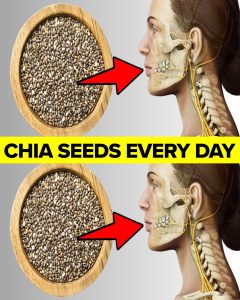 Thumb through a cookbook full of healthy recipes, and you’ll probably find at least a few with chia seeds as an ingredient. These tiny little black seeds have become a staple ingredient for many health-conscious consumers as an excellent source of healthy fat, fiber, protein, and other nutrients.
Thumb through a cookbook full of healthy recipes, and you’ll probably find at least a few with chia seeds as an ingredient. These tiny little black seeds have become a staple ingredient for many health-conscious consumers as an excellent source of healthy fat, fiber, protein, and other nutrients.
One of the things chia seeds are most known for is their fiber content, something that can be challenging to find in a typical American diet rich in processed foods and refined grains. According to an article in the American Journal of Lifestyle Medicine, getting enough fiber in your diet can improve digestive health, lower hypertension, and even reduce the risk of developing type 2 diabetes. The USDA’s FoodData Central lists a 1-ounce serving of chia seeds as having 9.75 grams of dietary fiber, with the recommended daily intake ranging between 21 to 38 grams.
Sometimes, you can have too much of a good thing, and that’s true for chia seeds. Here are the pros and cons of eating them every day.
They might be tiny, but chia seeds are mighty in terms of nutritional value. These small seeds pack a big punch of nutrients into your diet, including calcium, iron, and fatty acids. They also have other important nutrients, like copper, folate, zinc, magnesium, and phosphorus, and have about 5 grams of protein in a small one-ounce serving, making them a well-rounded food that’s relatively easy to add to your daily meal routine.





